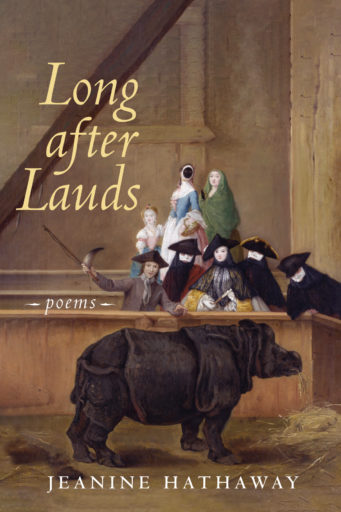

In its variety and generosity, Into the New World fashions poem-sized meeting places that invite us to be less divided from one another, less alone.
| Hardcover | ISBN 9781639820825 | $27.00 |
| Paperback | ISBN 9781639820818 | $16.00 |
| eBook | ISBN 9781639820832 | $12.99 |
In the title poem of Into the New World Robert Schultz takes the reader on a walk around the World Trade Center site shortly after its destruction: in response to this event, the book ranges through the extremes of war and peace, as well as backwards and forwards in time, searching for shards out of which to build an enabling, humane perspective.
Schultz’s voice is distinctive, yet he also has fashioned poems out of the nation-shaping prose of Emerson, Thoreau, and William James. Others are spoken in the voice of a Confederate surgeon, an American GI, and a Khmer Rouge photographer.
The poems treat wars past and current; the vivid presences of nature; love, marriage, and family—always seeking moments of lyric insight. Such moments occur as the speaker paddles across a shimmering lake, walks at night next to the black reflective wall of the Vietnam Veterans Memorial, or, courtesy of NASA, gazes at the rocky plains of Mars.
Schultz writes mostly in free verse, but he also adapts the music of forms ranging from the sonnet to the ghazal to Dante’s terza rima.
In its variety and generosity, Into the New World fashions poem-sized meeting places that invite us to be less divided from one another, less alone.
An apocalyptic, incendiary, autumnal energy floats over Robert Schultz’s new book of poems, Into the New World. In Schultz’s book, the terrorist demolition of the Twin Towers, the warming planet, and a poem nodding to the more recent alt-right terror in Charlottesville are the terrible ‘disclosings’ that signal an imminent endgame that sometimes leaves the narrator lying loose from God. But we also encounter curtains lifting in the bedrooms of lovers excruciatingly aware of imperilment but also exquisitely attuned to the erotic love of late middle age. Formal, risk-taking, inventive, this is very much a book for our charged and dangerous moment.
Lisa Russ Spaar, author of Orexia: Poems
When Keats wrote about the world as a vale of Soul-making, he was thinking about the work being done in poems like these. The soul here pushes back continually against a violence from without, imaged here as either war or winter. And what warms the soul, and delivers it from the inevitable human failures of feeling, is the fire of married love, the continual invitation to walk through the fallen world with another soul, hand in hand.
David Wyatt, author of Secret Histories: Reading Twentieth-Century American Literature
With exact craft and earned insight, Robert Schultz’s Into the New World gives us renewed hope in this uncertain age. The poems are testimonies of life’s many chemistries, from the intimate to the historic, and language’s alchemy.
Robert Morgan, author of Gap Creek